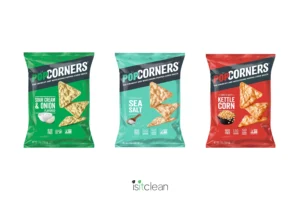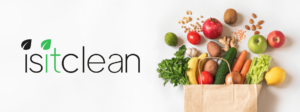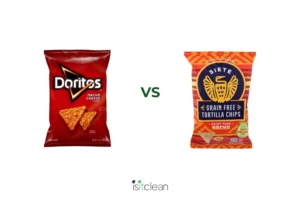
Acesulfame potassium is a zero-calorie sweetener that is added to many sugar-free…



Tocopherols added in food and skincare products are forms of Vitamin E derived from seed or vegetable oils. Some food products that tocopherols are added into in order to preserve food color or flavor include gums, salad dressings, and other condiments.
Tocopherols are produced by drying out oil from seeds. The seeds are usually ground, mixed with hot water, and boiled. In this process, the seeds are washed with hexane. The seed is then turned into a paste and pressed to separate the oil. After that, the hexane is separated from oil by evaporation and distillation. The oil can then be refined to remove flavor or odor.

Vitamin E is an essential nutrient for human health and added tocopherols in foods can help maintain adequate levels. However, supplementation with vitamin E has demonstrated mixed results, with some studies suggesting increased associations with mortality from supplementation while others suggesting neuroprotective benefits or improvements in various biomarkers from supplementation. This may be largely due to differences in populations in which supplementation with dietary antioxidants seems to benefit some and harm others. While tocopherols included in foods may be included at a much lower rate than supplementation, the addition of them in food could cause even higher levels of intake for people who supplement with vitamin E already. Tocopherols for use as a food additive are processed from seed oils. The heating of seed oils creates oxidation and rancidity. Prolonged consumption of heated vegetable or seed oils repeatedly has been shown to increase blood pressure, total cholesterol, and vascular inflammation. In addition, hexane is used in the production of all seed oils. Hexane isomer has been shown to be neurotoxic to humans. In addition, hexane has been listed as a cause of occupational diseases in several European countries since the 1970s. Foods rich in vitamin E contain naturally occurring tocopherols and are safe and anti-inflammatory, as the tocopherols are naturally occurring and not synthetic or processed. The safest way to absorb vitamin E is by eating foods rich in the nutrient. However, the amounts of tocopherols consumed as additives in foods is likely much smaller than the amounts consumed in supplements and may still promote a beneficial antioxidant effect.
Health is like a bank account, certain ingredients make a deposit into your health bank, meaning they add to
your health. Certain ingredients withdraw from your health bank. We want health promoting ingredients in our diet. To keep things simple, we rate ingredients on a green, yellow, red scale:

It is naturally occurring in food and has no harmful effects on the body. It is real food. It is health promoting.

It goes into one or more of the below categories

It is known to have a harmful effect on the body (ex. All food colorings, Natural Flavors, MSG, Potassium bromate, aspartame, artificial flavors)



The Food Showdown: Popcorners flavors
Ingredient Rating: Canola oil – is it bad for you?
Clean Consuming: Nourishment for your

We have accomplished so much in just 1 year since our launch in March of 2023! We now have 10,000

The Nacho Chip Food Showdown, is Tapioca Starch safe in food? and a must-see documentary on America’s food system.
Stay in the know with the latest ratings, articles, and our newsletter, The Dirt.